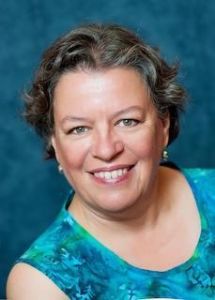New research explores how eating and feeding change for individuals and families when someone is sick
by Sgambati, Fred

by Jane Doucet
In the 1980s, when Dr. Catherine Morley, a professor in Acadia’s School of Nutrition and Dietetics and Harrison McCain Foundation Award recipient, began her career as a registered dietitian, she was aware that her training had prepared her to understand the science informing medical nutrition therapy, but not the complex emotions surrounding eating when sick.
“None of my instructors had talked to me about the human-to-human nature of my work,” says Dr. Morley, who earned a Bachelor of Applied Science in Human Nutrition from the University of Guelph in 1979. “Taking a holistic view of an individual – looking at their environment, their economics, their spirituality – wasn’t part of any curriculum back then.”
Around the same time, one of her brothers died of liver failure. When she returned to work a few days later, she was numb with grief. That’s when she realized that the individuals and families with whom she was working were experiencing similar feelings. “Every family I saw was living with grief. I thought, ‘I can’t believe I didn’t notice this before.’ What do I do now that I recognize this?”
Turned to research
What Dr. Morley did was turn to research, except she found none on this topic. A few years later, she began working toward a Doctor of Philosophy in Community Rehabilitation and Disability Studies at the University of Calgary. Her primary research interest became how the experiences of eating and feeding change for individuals and in families when someone is sick, and the relevance of the findings for dietetic practice and education.
“My motivation was to become better at nutrition counselling, to become clearer in my understanding of what was going on for people so I could offer appropriate support,” says Dr. Morley. “Once I was in the PhD program and realized that the topic had been minimally written about, that’s when I became keen to do the research and publish in peer-reviewed journals.”
Her research is rooted in the experiences of how eating and feeding are altered with changed health status. This can mean living with chronic conditions such as Parkinson’s disease or ALS (Lou Gehrig’s disease), one or more disabilities, the effects of an accident or injury, life-threatening illness, dementias, and end of life.
Human-to-human connections
Dr. Morley left British Columbia in 2011 to join the School of Nutrition and Dietetics’ then Director Barb Anderson (’77, now Professor Emerita) at Acadia. The pair had met in the 1990s while earning master’s degrees in adult education.
“Barb and I wanted to integrate food and adult education into the curriculum at Acadia,” Dr. Morley says. “It seems odd to think that food had been discounted as relevant to dietetics for decades. We wanted our students to be firmly grounded in all aspects of food. Now I get e-mails from our graduates years later saying they’re using what we talked about during their studies about the preciousness of human-to-human connections.”
In February, Dr. Morley launched cathmorley.com, a website for Catherine Morley Dietetics. Its purpose is to expand the reach of research findings and includes a blog highlighting her research, FLOWS (Feeding a Loved One Who Is Sick).
“My goal with this blog is to provide insights into why eating, a familiar life-sustaining activity that we undertake several times a day, can be so emotional and, at times, emotionally challenging, not only for the person who is living with illness, but also for their caregivers and all the others who care about and for them,” Dr. Morley says. “I want to raise awareness and bring some sense of relief that this really hard situation they’re living with is ‘normal’.”
Her intention is to make these experiences less stressful. By deconstructing the complexities of eating and feeding at “normal” times and then how these change with changed health status, readers of the blog will be able to assess their own situations; have a clearer idea about what’s happening and why they feel the way they do about food and eating; and make a plan of action to minimize uncertainty.
As Dr. Morley prepares to retire from a fulfilling career at Acadia, she looks forward to consulting. “Creating FLOWS and having it available to people feeds my soul. It’s what I got into this business for in the first place – to help others. Once I learned about the heavy emotions associated with eating, feeding and illness, I couldn’t unlearn it. One either does something about it or runs in the other direction, and I wanted to do something about it.”
Donor Relations Alumni Relations Publications Give Now
Contact
External Relations
Rm 225 University Hall
15 University Avenue
Wolfville, NS, B4P 2R6, Canada
General Inquiries: 902.585.1026
To make a donation: 902.585.1912
Toll Free in North America:
1.866.ACADIA (1.866.222.3428)
externalrelations@acadiau.ca
Charitable Registration #: 106681893 RR0001
